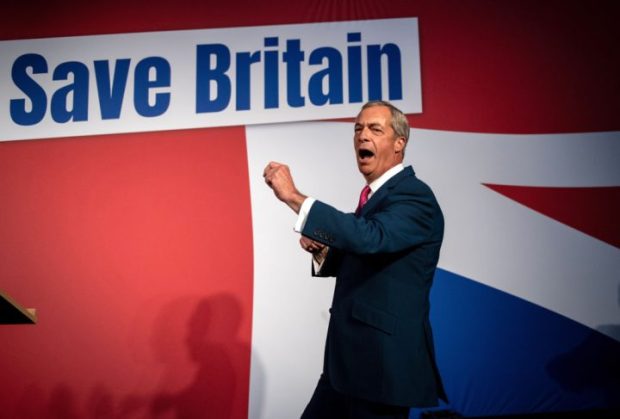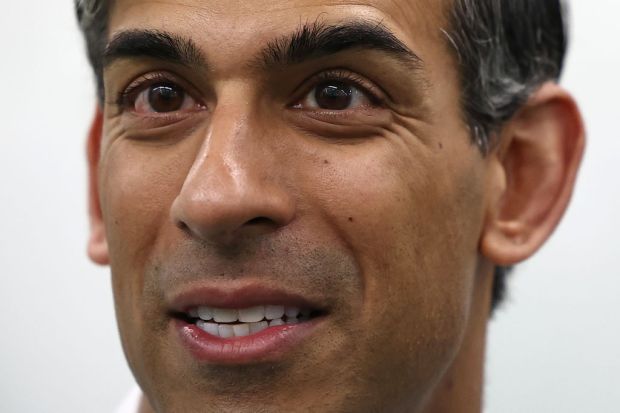Lee Anderson joining Reform UK is unquestionably a disaster for Rishi Sunak. It will guarantee the challenger party huge coverage and further orientate it towards the ‘Red Wall’ vote that powered the Tories to victory in 2019. Expect to see opinion polls showing a further decrease in the gap between Reform and Conservative vote shares in the coming weeks.
The outspoken Anderson hitching his wagon to Reform will create a pull factor for working class culturally and socially conservative voters to match the push factor that Sunak himself set in train when he sacked Suella Braverman and brought David Cameron into his cabinet. Reform has added about five points to its poll rating since that politically clueless reshuffle. Another five points, taken from the Tory column, would put the two parties very close to parity.
Now there is a real prospect of the Tory vote share in Red Wall seats switching to Reform in bulk
So far so lovely for Keir Starmer and the Labour party, then. A national Tory rating down in the high teens will bring swathes of seats across the south of England into Labour’s reach. The party has not held these since Tony Blair was in his pomp. It will also add to the now-widespread impression that Sunak is a loser and that his party has no chance of holding on to power.
And yet shrewder Labour tacticians will understand that Reform becoming so specifically orientated towards Red Wall seats, and with such a compelling character as Anderson as its ‘champion’, complicates their task at the forthcoming general election. Hitherto, the goal of winning back all 45 of the Red Wall constituencies that turned Tory in 2019 appeared very straightforward. Now there is a real prospect of the Tory vote share in those seats switching to Reform in bulk.
Anderson himself will be a short-priced favourite to hold on in Ashfield. Other seats where the Brexit party performed very well in 2019, and where Reform could prosper include Hartlepool and a swathe of constituencies in South Yorkshire in and around the old mining heartland of Barnsley.
The very issues that Anderson has been highlighting on behalf of Red Wall voters – excessive immigration, weak law and order, the failure properly to confront the Islamist threat or to fight back against Woke – are ones that Labour is liable to have every bit as much trouble gaining credibility on as have the Tories. If things go well for Reform in the coming weeks, there will be strong grounds for thinking that it could prove a more challenging main opponent to Labour in Red Wall seats than Sunak’s Tories would have been in their current depleted state.
We must now also take seriously the boasts of Reform leader Richard Tice that other Conservative MPs will probably come over in the run-up to the election. Ever since his reshuffle, Sunak has been running a Blue Wall strategy, aiming to hold prosperous seats in the south while writing off the Red Wall. Tory MPs representing working class seats in the north and Midlands generally understand that. It would come as no great surprise were several to decide they had a better chance of winning under Reform colours than Tory ones.
Across the country at large, our working assumption must be that Reform’s vote share will largely come at the expense of the Conservatives. But what if many of those switching to the insurgent party would have switched to Labour in its absence? In seats where incumbent Tory MPs have a big personal vote to potentially see them through – take Penny Mordaunt in Portsmouth North for example – a rise in support for Reform will surely be preferable to a straight two horse race against a surging Labour.
In the 2015 general election, everyone assumed that the main impact of a strong UKIP vote share would be to damage the Tories. In the event, many habitual but disillusioned older Labour voters who couldn’t bring themselves to vote Conservative switched to UKIP instead. The phenomenon cost several Labour MPs, including Ed Balls, their seats and helped the Tories secure a narrow overall majority.
This time around, a Tory majority is less of a prospect than a total Tory wipeout. But for Keir Starmer’s party, life just got appreciably more complicated.
Got something to add? Join the discussion and comment below.
Get 10 issues for just $10
Subscribe to The Spectator Australia today for the next 10 magazine issues, plus full online access, for just $10.




















Comments
Don't miss out
Join the conversation with other Spectator Australia readers. Subscribe to leave a comment.
SUBSCRIBEAlready a subscriber? Log in